A new year and new travelogues. To start off I’ll be posting some more Japanese Musings written about my time living there 2000-2, probably because I’m in a Far Eastern mood in anticipation of visiting China and North Korea in April. Then I have travelogues on Israel, Germany and Poland and Armenia lined up so plenty to look forward to!
Keep travelling!
Uncle Travelling Matt
Links to all the Japanese Musings:
Series 1
Japanese Musings I: Heads, Shoulders, Knees and Toes
Japanese Musings III: The Thin Blue Line
Japanese Musings IV: Nihon no Shokyu
Japanese Musings V: The Sporting Life
Japanese Musings VI: A Bad Day
Japanese Musings VII: Time, time, time…
Japanese Musings VIII: The Joys of Internationalisation
Japanese Musings IX: Meri Kurisumasu!
Japanese Musings X: It’s Cold Outside!
Japanese Musings XI: Moomins and Mydo Cardo
Japanese Musings XIII: Valentine’s Day
Series 2
Japanese Musings 2.1: Arrival: Tokyo
Japanese Musings 2.2: Arrival: Inaka
Japanese Musings 2.3: Riding the Kamioka-sen
Japanese Musings 2.2: Arrival Pt. 2: Inaka
If 'Lost in Translation' is to be the film that captures my first few heady days in Japan, then the Studio Ghibli animé classic 'Only Yesterday' is the one which describes the Japan that I discovered after my ANA jet landed on the tarmac of Toyama Airport. That film tells the story of Taeko Okajima, a city girl, who escapes to the countryside for a working holiday and discovers a whole new life. The connection is obvious from the start. The only differences is that the heroine in my tale is now a hero and considerably rounder and more foreign than Taeko-san. Oh yes, and for the first week or so he was still suffering from the most extreme bout of culture shock that he has ever experienced in his life.
One of the main themes of that film, and of my removal from Shinjuku to Ōsawano, is the huge gulf between city and rural life in Japan. Japan is one of the most urbanised societies on earth and has been for a long time. And those in the city have one word for places like Yamagata-ken,[1] (where Taeko-san went for her working holiday), and Toyama-ken, (where I was headed): inaka.
The dictionary tells me that “inaka” means “country”, but it's more than that. Inaka is more than a place, it is a state of mind. Perhaps a better translation would be “the back of beyond” or “the middle of nowhere”. 'Only Yesterday' explores in a sympathetic way the huge differences in mindset and pace of life between city dwellers and those in inaka. Most Japanese are less kind; the term has a negative tone to it, just like “yokel” does in English. I however, take pride in the label and reflecting back I have come to realise that I am a great lover of the provincial and one who distrusts the metropolis as a superficial display of unconnected wonders.
Back then though, I was in no state to muse so profoundly on the urban-rural question. Instead I was still reeling from culture shock and suffering from an horrific hangover. Nonetheless, the show had to go on. In Shinjuku I had been introduced to City Japan; now in Toyama I would learn about inaka and its own, very different, culture shocks.

Inaka as depicted in 'Only Yesterday'. Scenes like this remind me of Ōsawano
I was met at the airport by Keichi-san and Tonami-san; the former a middle-aged gent and the latter a younger man, who were to be my supervisors at the town hall. You see, with the JET Programme, Assistant Language Teachers are employed by MOMBUSHO, (the National Ministry for Education), and then distributed amongst the local education boards and in Japan, individual towns run their own education authorities. Therefore, although a teacher, I was technically employed by and based in the local yakuba (town hall) and so it was there that we headed first to sign some documents.
After that though, I was taken to my hotel for the next few days, (as my apartment was still occupied by my predecessor), the Ōsawano Palace. A large board by the front door had my name on it – the only one in Latin characters – announcing me as an honoured guest and with great ceremony I was shown to my new temporary home; Room 101. And there I was left to take a relaxing bath and then sleep off my jet-lag and hangover whilst thoughts of “Do it to Julia!” crashed about my head.[2]
I was woken at six in the evening and then taken for what I described in my diary as “a meal in a restaurant on the edge of the mountains”. It fact, it was much more than just a meal; instead it was an enkai to welcome me, Matto-sensei, the honoured new ALT of Ōsawano-machi whilst also saying goodbye to Matto-sensei, the honoured old ALT of Ōsawano-machi.
The enkai, I was to learn as my time in Japan progressed, is a huge part of Japanese corporate culture. Translate the term into English and you'd probably get something like “works party” but the enkai is far more than just that. For in Japan you see, work is something far more than just somewhere that you turn up at between the hours of nine and five on weekdays and thus its party is much more than simply an opportunity for colleagues to get drunk together, (although that is very much part of it). But back on that balmy evening in Inotani, (the village “on the edge of the mountains” where the restaurant was located), I knew none of that. Instead I was still hungover and my body clock was still out, plus I was still reeling from culture shock and now, straight after being woken up in Room 101, (without having done it to Julia), I was faced by a collection of inebriated Japanese people wishing to get to know me despite the lack of a common language, and vast quantities of extremely strange food from raw fish to soup, yakitori (skewered pieces of marinated chicken), noodles and steak topped off by a rather more culturally-adapted Swiss-American who shared my name. It was 'Lost in Translation' all over again only this time, the rural version.
And in true 'Lost in Translation' style, we then proceeded to a karaoke establishment which boasted extremely pretty hostesses in kimonos who sat next to you and clapped when you sang. Consequently, I sung three songs; 'Daydream Believer', 'Norwegian Wood' and 'My Way' and the last one got the most claps from my pretty traditionally attired companion which I thought strange since that was also the only one that I sang badly. Matt Chapuis noticed this, but no one else did, probably because they were all roaring drunk by this stage.
And then finally it was back to Room 101 late. Not that I was tired mind as my body clock was still somewhere midway over the Central Asian steppe and so instead of sleeping, I went to sit on the toilet. Which might sound a little weird to you, but trust me, you haven't seen the toilet that graced Room 101. it came with a remote control and had a heated seat. Jets of water caressed your nether parts at the touch of a button and then on came the built-in drier. Trust me, when there are sanitary facilities like those on offer, I ask you, would you have done any different?
Everyday that passed taught me something else about my new country and before Matt Chapuis came round to the hotel at noon, I'd learnt two more lessons. Lesson #1 was exactly what a traditional Japanese breakfast consists of. Back in Tokyo we'd had breakfasts provided of course, but in the superficially Westernised precincts of the Keio Plaza these had been pleasant but not particularly native. Here in inaka however, as I was to discover in great detail over the coming two years, it was very hard to escape native. The breakfast in the Ōsawano Palace was rice with seaweed and fish. Even without a hangover, my Westernised taste buds could hardly stomach such maritime weirdness so early in the morning. And so to recover, I decided to take a walk and in doing so I learn Lesson #2.
Now I like, (and have always liked) railways and trains, and driving to and fro the Ōsawano Palace the day before, I'd spied a railway station only a quarter of a mile or so from the hotel and so when I decided to take a short stroll, where better to head for?
I barely made it. A quarter of a mile maybe, but it was a quarter of a mile in such heat, such sticky, heavy, sapping, humid heat.
I'd known that it was hot of course, both in Tokyo and the day before around Ōsawano. But I hadn't realised just how hot and what kind of heat it was. In Shinjuku and the previous day I'd spent most of my time indoors in an air-conditioned false reality, only really leaving in the evenings after the sun had set. I had ventured out one afternoon in Shinjuku but in that concrete jungle the tall buildings gave shadow, half the walk was in an underground passage and an air-conditioned shop was never far away. Between the Ōsawano Palace and the railway station, it was just you and the elements.
And what elements were these? I'd experienced heat before in both Greece and Israel, but that was a dry heat, a pleasant heat. Japan's summers on the other hand, are tropical – humid and heavy – and that was a whole new heat experience for me. I soon learnt that even the sun-loving Brits are desperate for autumn to begin in Japan. After returning from the station I ventured out no more and instead retired to my room to escape from anything Japanese by reading a book on Albania.[3]

My predecessor in the schools of Ōsawano: Matt Chapuis
Matt Chapuis came at lunchtime to take me to somewhere very important: my new home. I'd been warned about the size of Japanese living spaces prior to departure but even so my aparto[4] came as yet another cultural earthquake, although admittedly only a slight tremor as compared to the Richter Scale 10 of a fish and seaweed breakfast.
It was small, perhaps 4m². Half was a single living/sleeping space with sweet-smelling tatami mats on the floor and a large cupboard in which to roll up my futon (in essence a thin mattress). Then there was a minuscule kitchen with two hobs, a sink and a microwave, a space for my (cold water only) top-loader washing machine and then the bathroom, entirely moulded out of plastic and complete with a toilet, basin, shower and half-length deep bath which would have been a total culture shock had I not been brought up in the only home in Staffordshire that had one the same; one of my father's DIY eccentricities. So, all good except for one major factor: the other Matt was still living there and as there was definitely not room for two, we made a quick exit.
We went to Toyama-shi, the local metropolis, about eight miles down the road from Ōsawano. It made me laugh when all the Japanese referred to the area as 'inaka': with a population exceeding 350,000 the city exceeded the size of many second cities, (and quite a few capitals), of a dozen European countries. Compared to Shinjuku though, the distinction is perhaps a little more understandable.
I needed a camera with which to record my new life so we went to the city's main photography store. A cheesy jingle repeating the words “Camera! Camera! Camera!” played over the loudspeakers whilst I was sold the cheapest camera in the shop by an über-smiley assistant. That camera cost me ¥9,000 (circa £50 – at the time cameras started at around £20 in the UK), but featured zoom, time and date and several other features typical of only top of the range machines back home. In Japan I learnt, bargain basement simply does not exist when it comes to technology.
We went on to Yatsuo, a town of similar size to Ōsawano but infinitely prettier and more historical. Matt's car – soon to be sold to me – rattled down the cobbled streets lined with traditional wooden shops and houses and the climbed the steep hill behind the town upon which the park and main Shintō shrine are located. Sat up there in the late afternoon sun, chatting to Matt about travelling and the life that awaited me in Japan, insects buzzing about and the traditional Japan of picture books laid out below us, I realised that I had finally arrived. My body clock was now (more or less) attuned to Japan time, the culture shock was receding and the main elements of my new life had been introduced. The time of transition was over; it was now time to begin.
Written August 2013, HMP Dovegate
Copyright © 2013, Matthew E. Pointon
Next Musing: Riding the Kamioka-sen
[1] 'ken' is the Japanese word for 'prefecture' or 'county'. I lived in Toyama-ken which was named (as must prefectures are) after its capital. Other words that I use in this travelogue are 'machi' which means 'town' (as in Ōsawano-machi) and 'shi' which means 'city' (as in Toyama-shi).
[2] George Orwell's '1984' is my all-time favourite novel and Room 101 is the torture chamber. It was in there that Big Brother finally broke Winston Smith by getting him to betray his true love, Julia, with cries of “Do it! Do it to Julia!” when given the choice of rats eating his face or hers. At university I had a very pretty and charming friend of the same name and whenever I went out for a coffee with her, a housemate who was also a '1984' aficionado would shout “Matt do it! Do it to Julia!”
[3] Robert Carver's 'The Accursed Mountains'. In my diary I wrote, “[Albania] sounds a fascinating place. I'll have to check it out properly someday”. In 2009 I fulfilled that pledge (see travelogue 'Albanian Excursions').
[4] The Japanese have a habit of borrowing foreign words and then shortening them. Thus 'apartment' becomes 'aparto', 'department store' = 'departo', 'convenience store' = 'conbini' (there's no 'v' sound in Japanese), 'animation' = 'animé' and 'television' = 'terebi'.
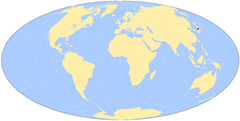
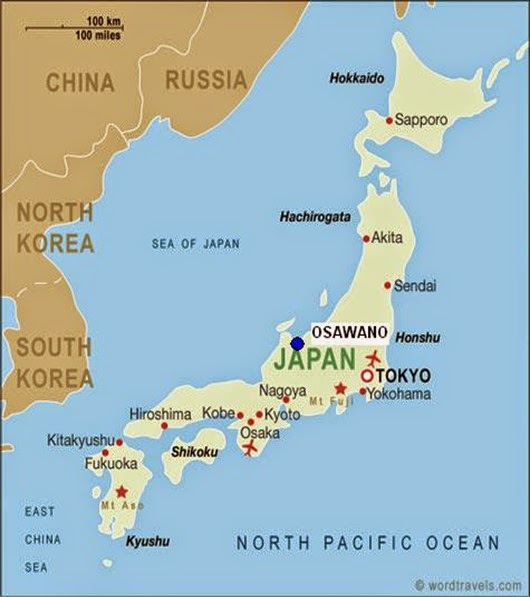

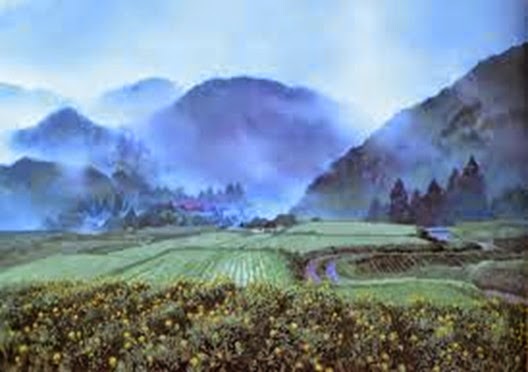
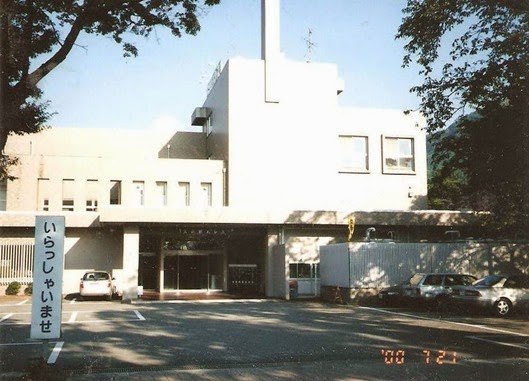



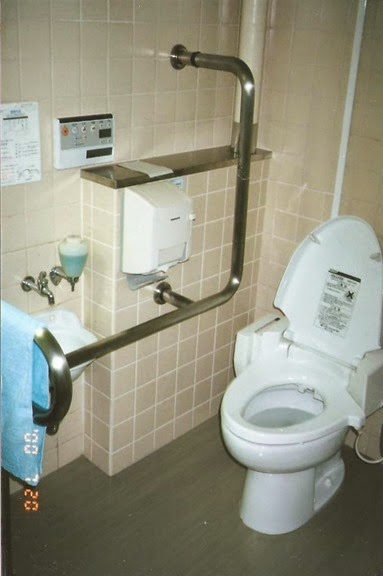
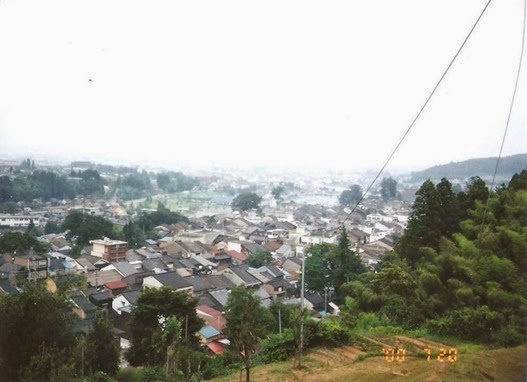
No comments:
Post a Comment